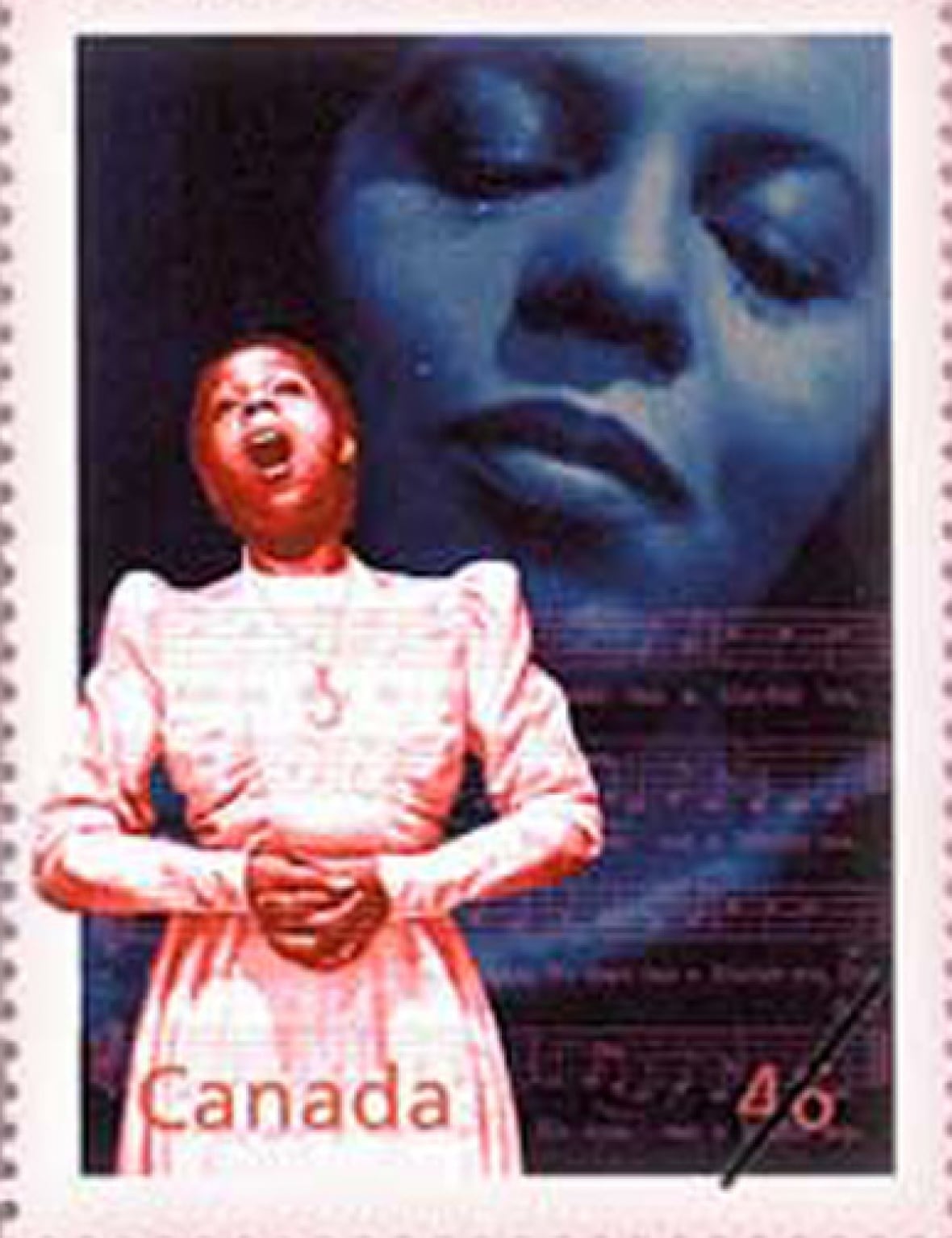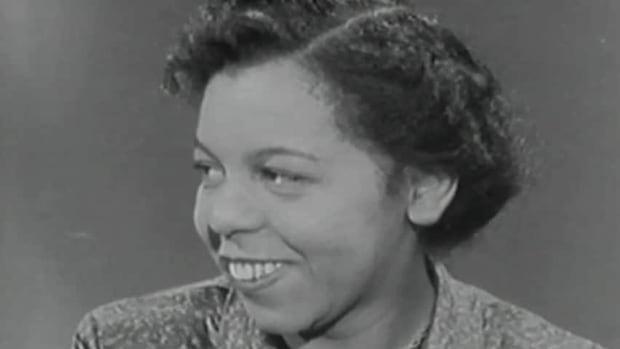Canadian contralto Portia White's life on the stage
Famed singer started out in Nova Scotia, but found the limelight on stages around the world
"Portia White, contralto," as she was introduced to a CBC-TV audience in 1958, was in the studio for a chat about her current work and whereabouts.
The Canadian Encyclopedia describes White as "the first Black Canadian concert singer to win international acclaim."

White was a celebrated international performer by the time she appeared on CBC-TV's Tabloid in November of 1958. She had made her Toronto concert stage debut at the Eaton Auditorium almost two decades earlier.
White, who was born in Truro, N.S., but raised in Halifax, began her studies at home. When she spoke to Tabloid, she was both teaching and studying in Toronto.
"I did some studying in New York, and at the moment I'm studying here in Toronto — there's no need to go far afield now to study, because we have some of the best singing teachers in the world right here," White said.
White was also performing on Tabloid with the Ron Collier jazz quintet — a departure for the singer who was known for her classical and spiritual music performances.
'Branching out' into jazz
She talked to CBC Radio about that collaboration, which fans would also see at a Toronto concert the following day.

White described two of the spirituals she was going to perform with Collier's quintet, telling CBC Radio "from then on, I'm branching out into several different directions."
Leslie Bell, a musician and arranger who interviewed her on CBC Radio, asked about the purpose of combining the spiritual music with jazz.
"It's not a question of a jazz quintet program with Portia White as guest artist," Bell said.

"Actually the idea of Portia White appearing with a jazz quintet is rather a shocking one, unless it's explained," she agreed. "We're tracing the relationship between jazz, as it is known today and the spirituals from which jazz has evolved."
The three discussed the categorization of music as jazz, and as "serious" or "highbrow."
Bell also asked her about about the connections between jazz and spirituals.
"I think there's no doubt about where the rhythm arose," White said. "I think that the rhythm of the Negro spirituals is the rhythm of the North American continent really, I think that is the music that is native to this continent."
Concert stage 'more respectable'?

Bell reminded them that there was a "moral implication" in the playing of jazz, and "you were delinquent if you played jazz."
"I'm the daughter of a Baptist minister, and when my father knew that I wanted to go on the concert stage, he said: 'Well I don't think that's the kind of life you want to lead,'" White said.
"The concert stage was much more respectable than I'm sure the jazz field was," she concluded.
White, who was born in 1911, died in Toronto on Feb. 13, 1968.
That year, George Elliott Clarke was the recipient of the first Portia White Prize, awarded annually since to a Nova Scotian who has achieved "cultural and artistic excellence."

